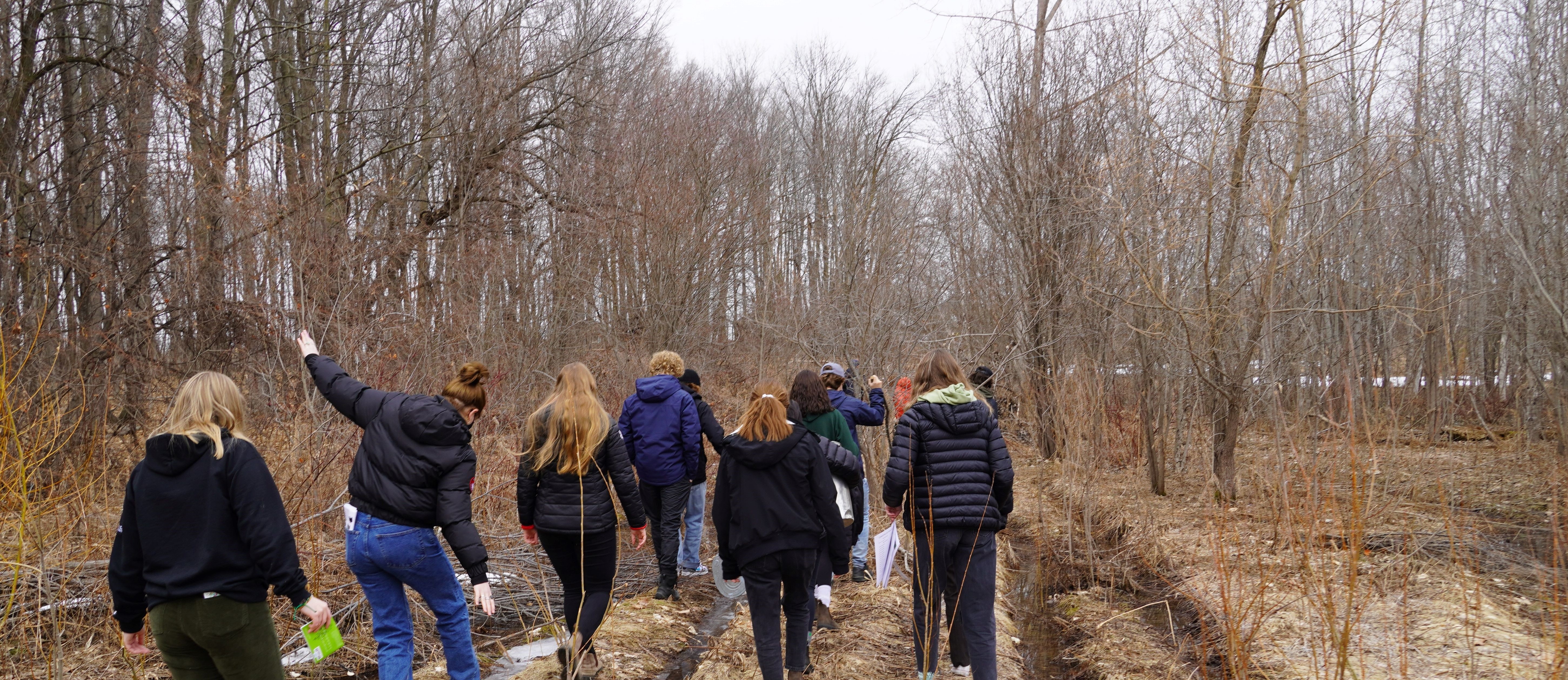Some enthusiastic Simcoe County high school students have been spending time outdoors—and in the classroom—learning about everything from stopping the spread of invasive plants to turtle conservation.
They are becoming environmental leaders through a new partnership between Parks Canada and Lakehead University. The students are enrolled in Lakehead's Ontario Youth Naturalist Program and several of the program's modules are led by Parks Canada staff.
Lakehead and Parks Canada are providing this conservation training in conjunction with the Ministry of Education's Specialist High Skills Major (SHSM) curriculum. SHSM allows students to earn certifications in different economic sectors—such as manufacturing, transportation, and the environment—to help them on their career path after they leave high school.
"In Simcoe County many of our students are interested in environmental issues, and we want to offer young people programming that aligns with their values," says Dr. Linda Rodenburg. She is the interim principal of Lakehead Orillia and the director of Lakehead's Office of Community Engagement and Lifelong Learning (CELL), which operates the Ontario Youth Naturalist Program.
"Connecting with nature gives people resilience and improved mental and physical health," adds Jennifer Belanger, a Parks Canada public outreach and education officer. "Also, by exposing young people to nature, they develop a connection to protected places and become interested in conservation."
Belanger teaches several of the Ontario Youth Naturalist Program modules as part of SHSM's environment sector certification. She and her Parks Canada colleagues are introducing students to topics including pollinator conservation, turtle conservation, bear safety, invasive species, herpetology, and monarch butterfly biology.
In 2023, the Ontario Youth Naturalist Program won the Invasive Species Centre's Leadership Award and Parks Canada nominated Lakehead University for their Chief Executive Officer's Award of Excellence. They've also received crucial funding from the Invasive Species Centre to expand the Youth Naturalist programming.
Mark Gaynik, a Nantyr Shores Secondary School teacher who runs his school's SHSM environmental programming, enjoys seeing his students' sense of curiosity take flight.
"Learning doesn't just happen within the four walls of a classroom," he says. "It's only when students become aware of what's going on in the world that they really start to learn."
He remained committed to delivering conservation programming, even when the pandemic made it necessary for Lakehead to replace in-person classes with virtual live synchronous classes.
"We worked hard to use technology like Flip Grid and Zoom so that students could go out in their own backyards and continue their learning," Dr. Rodenburg says.
When Gaynik's students engaged in activities such as building artificial wetlands, for instance, this technology was crucial.
"I would wheel video monitors over to where the students were working so that they could listen to conservation experts like Bob Bowles talk about actual wetlands," he explains. "This had much more of an impact on the students than a film or textbook ever could have."
Now that pandemic restrictions have lifted, students have more freedom to learn and explore. They took their first field trip in September 2022, travelling by boat to the Georgian Bay Islands National Park to cut down invasive phragmites plants that are growing on the island.
The students' positive responses to this new programming means the Lakehead-Parks Canada partnership will thrive and grow in the future—a 2021 survey found that 100% of participants reported that the Parks Canada modules were their favourite SHSM programming.
"Today's youth are very aware of the importance of conservation protection and climate change, and they want to make a difference," Belanger says.


